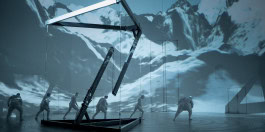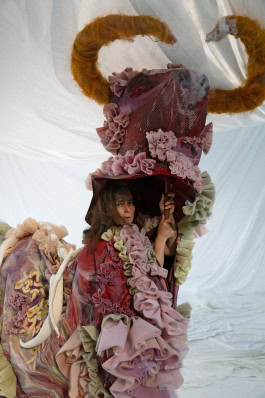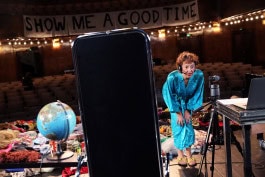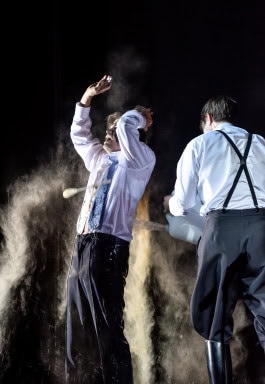
It’s still incredibly valuable to a theatre community and society as a whole to keep theaters running in whichever way this could be. Afterall, any format is a form of expression, whether educational or entertaining.
The Theatertreffen, an annual festival bringing remarkable productions from the German-speaking countries, as well as works by emerging artists from across the world, will run virtually for a second year in a row. Against the backdrop of the crisis, this year’s pieces will reflect on digital utopias, big shifts and class society.
The festival’s long-standing Berlin history makes it one of the most living and loved events in the city. In 1963, just one year before the very first Berlin Theatertreffen, Berliner Festwochen invited, as a pilot project, five productions from various German city theatres to Berlin. In October 1964, the first Theatertreffen took place under the title of Berliner Theaterwettbewerb (Berlin Theatre Competition), and to this day, its basic structure remained – 10 remarkable productions are selected by a jury of theatre critics (who travel around Germany, Austria and Switzerland for selection process) and then presented in Berlin.
In more recent years, some new developments have transformed the festival. It was expanded to include English-speaking authors and productions in other original languages. The Open Campus was launched as a place for future theatre makers to meet and to network. Theater collectives were allowed to compete. And as of last year, five of the ten final productions have to be directed by women.
Showcased live this year are “Simply the end of the world” by Christopher Rüping from the Schauspielhaus Zurich, based on Jean-Luc Lagarce’s modern classic, telling a story a young man who leaves his bohemian city life behind to return to the place of his childhood to reconnect and reveal his secret; "Show Me A Good Time" from the Haus der Berliner Festspiele, a 12-hour live premier by the German-British artists’ collective Gob Squad, co-produced in Berlin and in San Diego and connecting performers across the ocean in this live production; “Medea *” by Leonie Böhm from the Schauspielhaus Zurich, explores the ancient myth of Medea; "Realm of Death" by Rainald Goetz from the Deutsches Schauspielhaus Hamburg, a four-hour play looking back at 9/11 and its aftermath, sketching a picture of politics in a state of emergency; and "The Magic Mountain" by Thomas Mann from the Deutsches Theater Berlin, reconstructs a book narrative and removes its politicized plot becoming a play for seven actors.
If this is not enough of a virtual theater, in addition to live streams, festival’s full program offers the TT Context discourse program with a new series of four talks What Are We Waiting For? about the situation in performing arts during pandemic. Other highlights include the Focus Living Theater, political theater founded in New York, the Stückemarkt, focusing on new authors, and the Stages Unboxed digital showcase.

Photo by: Medea, Gina Folly

Photo by: Show me a good time, Dorothea Tuch

Photo by: Realm of death, Arno Declair
Related Articles: